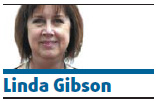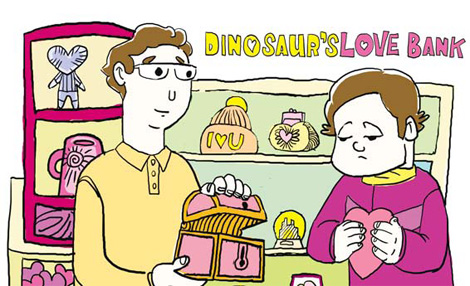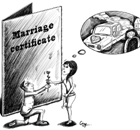Comment
Storing emotional baggage
By Linda Gibson (China Daily)
Updated: 2010-02-03 09:36
 |
Large Medium Small |

A Beijing entrepreneur has opened a business he calls "The Dinosaur's Love Bank." It's a storage place for tokens of affection from failed relationships.
Business is good, he says. Most people sign one-year contracts to rid their surroundings of mementos that bring them pain.
However, he may be missing a bigger opportunity. Why stop at love tokens?
Most people carry a huge load of unwanted emotional baggage, a painful burden weighing them down in life. Each unhappy experience we'd like to forget tends to generate its own tokens. And for various, often perverse reasons, we have trouble letting them go.
The number of documents we feel compelled to hoard boggles the mind: ancient school records, old photographs, the letter saying you were being dumped for another man or woman, scolding missives from parents or accusatory rants from grown children, and most correspondence from lawyers, government agencies, accountants or ex-spouses.
This could all fit into file cabinets, but the potential problem is much bigger than that, bigger than the shelves already used at the Dinosaur's Love Bank. It could require a chain of warehouses across the country.
The market for "dinosaur banks" goes beyond mere mementos and into the realm of large material goods. As China develops into a consumer economy, the need for storage space will be a measure of its success at boosting domestic incomes and spending.
The more people acquire, the more they eventually have to shed.
In the US, the mindless materialism of a consumer-driven economy has created an entire industry of storage facilities for items people own but don't have room for. They're called self-storage units. Each is about the size of a one-car garage, room enough to stuff with furniture, clothes and knick-knacks. They rent by the month or the year, and each facility typically has hundreds of them.
Even though American houses have grown to absurd sizes, people acquire so many belongings they can't all fit into their houses, basements, attics and garages.

The problem is compounded by the high divorce rate, something else China is experiencing. Every time a household splits and another one forms, belongings from the former spouse often get exiled to storage.
And then there's our own stuff, once precious but now just a chore. Old sports equipment, ridiculous wedding gifts, ugly furnishings passed down from parents or in-laws, clothes that no longer fit, half-finished projects nobody has time to complete, supplies for former hobbies: the possibilities are endless.
Much of this stuff carries unwelcome memories. They're reminders of failed relationships, unsuccessful businesses, ruined plans and dashed dreams.
But just like the clients of the Dinosaur Love Bank, people find it very hard to get rid of even unwelcome items.
Of course, a lot of this stuff could just be thrown away, given away or sold. But those options aren't easy to exercise. Even when we dislike an item, and the person it reminds us of, it's not easy to give up if it used to carry a strong emotional attachment.
We cling to items from our past because parting with them feels like losing pieces of ourselves. It doesn't matter if it's been years since we were the "selves" represented by those items.
All those things we no longer want around but can't give up remind us of the people we used to be. Only when we're comfortable with that can we part with those things.
Until then, it's very handy to have a place to put them that is out of sight but still under our control.









